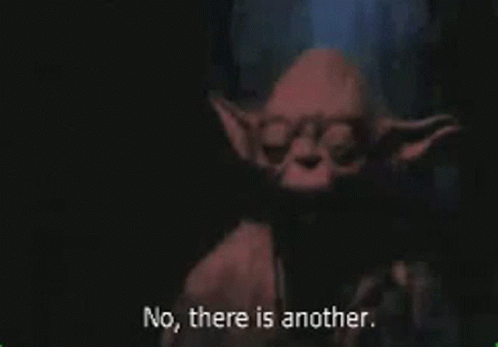Octopodes.
Octopodeez nuts
Beat me to it
Please don’t beat your meat to octopodes
Hey, we’re not hurting anyone!!!
It is octopodes. It’s Greek and it follows the Greek pluralisation convention.
Words brought into English can use English pluralisations, so you’re not wrong if you say octopuses. I think Grammar Girl had a take on this maybe 7 or even 8 years ago by now. These days, I can’t see myself getting worked up about it for the sheer fun of being pedantic like I used to.
It’s not octopuses that octopodes corrects, it’s octopi. Octopi is a Latin pluralization, and since the word is Greek and us to i isn’t specifically American, I agree with you that octopuses is fine but not that octopi is fine.
Octopussy. Thank you very much.
Octopussies
I knew there was going to be someone as
childishfunny as me in here!
Hexadecipus
When a Roman family has their 16th child.
Octopus, octopuses, and octopodes are correct. Octopi incorrect.
Octopi is also correct. If anything, more correct than octopodes by virtue of popularity. Mismatching the language to the suffix does not a fake word make!
The downvoters are silly prescriptivists ;)
In greek it would be incorrect, in english it’s not worse than the others.
As long as they’re penetrating a lady I don’t care what they are called.
Ah, i see you are a man of culture as well.
If you say ok-top-o-dees, you’d better be prepared to deliver this spiel at a moment’s notice
HA! That video was really good. Extremely quick and to the point, great linguistics content, and funny to boot!
Octopi is a hypercorrectism which doesn’t make it wrong
A hypercorrection based on a misunderstanding of the Latin declension for the word, at that.
Neither are incorrect, that’s the point
I just wanted to namedrop the technical term. Both are fine
My favorite hypercorrection (a hyperforeignism, if you like) is “habañero,” and really stressing the “ñ” when you say it.
Except it’s just “habanero,” plain ol’ “n.” The confusion is presumably due to “jalapeño” having an accent.
If you want a hyper anglizism: I’m German and after an interview, a colleague of mine talked about the candidates’ “vibes”. My boss didn’t get it’s English and once she did, she pronounced it like “wipes”. b>p at the end of words is what German always does and v>w to make it sound English since German has the /v/ sound but not /w/. I don’t think it’s a common thing tho.
Octopussies
Octos
… podes
Marco!
Veemo!
Woomy!
I am the guy in the middle, except I’m telling people it’s octopuses.
You do have the benefit of being right though.
The word octopus is a classical Greek word that comes to English via Latin. The Greek plural is octopodes, the Latin plural is octopi. But we don’t speak Latin or classical Greek. We speak English. Because octopus is the English word for octopus it follows the English rules for pluralization, which is to add “s” or “es” to the end of the word. Cases can be made why octopi and octopodes could be technically correct, but for English speakers octopuses is the most correct.
Yeah, I did something for work where I had to study up about it and instead of being angry it’s just kind of a fun fact. I don’t actually mind what people say, I think everyone understands what you mean regardless.
Octopice.
Several of Octopus
Roger Moore would disagree.
Why is octopi correct? Based on what?
Because people use it, and if you say it everybody will understand without any ambiguity.
Then the meme is formatted incorrectly. Or “correctly”, if we define correct as “incorrect, but, you get it, so…”
Except, usage defines language. If it didn’t, English wouldn’t exist. Therefore, usage is correct when people understand and use it.
That’s what I said.
Then why are you saying it’s incorrectly formatted? I’m directly backing its premise.
“Octopi” is only “correct” because of common usage. Octopus does not have a Latin origin, so it doesn’t make sense to pluralize it that way. Which is to say it’s not technically correct, it’s just “correct”.
In the proper format of this meme, the wojack in the middle should be obsessed with technical correctness, while the one on the right is fine with merely “correctness” (as in, enough people use it to make it understood).
But since you can understand it, the format is merely “correct” (I’m being tongue-in-cheek to make a point)
Octopuses is correct if you’re referring to many different species of octopus. Octopi would be correct if you’re referring to a cluster of one species of octopus.
Octopi would be correct if you’re referring to a cluster of one species of octopus.
Based on what?
The Latin origin. Words ending on -us turn almost always into -i in plural in Latin. And that’s where it comes from (octo eight, pus/pes foot).
It’s Greek, not Latin. It should be octopodes.
This is the one.















